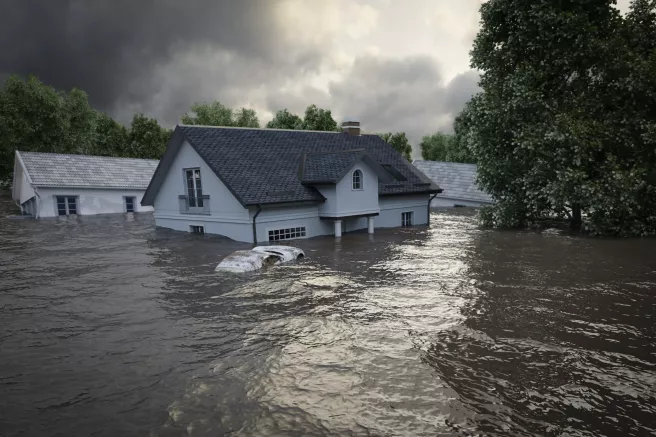Brought to you by Steve Silver Insurance Services: Your Trusted Partner in Preparedness and Protection.
With recent natural disasters making headlines, it's important to stay connected even when traditional methods fail. Did you know that the new iPhone iOS18 update (available on iPhone 14 and later) and certain Android phones now allow you to communicate via satellite phone when you are without Wi-Fi or cellular service? This feature can be a lifesaver during emergencies when other forms of communication are unavailable.
In addition to staying connected, it's a good time to review what your insurance covers and how you can protect yourself from the unexpected. Whether it’s hurricanes, floods, wildfires, or even earthquakes, being informed about your insurance policy can make all the difference in how well you recover from a disaster.
What Does Standard Homeowners Insurance Cover?
Most standard homeowners insurance policies offer protection from a variety of perils like fire, windstorms, and hail. However, there are a few common natural disasters that might not be covered, including:
- Floods: Flood damage is typically not covered by standard homeowners insurance. You may need a separate flood insurance policy through the National Flood Insurance Program (NFIP) or a private insurer.
- Earthquakes: Like floods, earthquake damage is excluded from most policies. If you live in an earthquake-prone area, purchasing earthquake insurance is a good idea.
- Hurricanes: While wind damage from hurricanes is usually covered, flood damage caused by storm surges might not be. It’s important to understand the distinction between wind and flood damage in your policy.
Understanding Deductibles for Natural Disasters
Many insurance policies include special deductibles for certain natural disasters. For example, hurricane deductibles are often calculated as a percentage of your home’s insured value, rather than a flat amount. It’s essential to know your policy’s specific terms so that you’re prepared if a disaster strikes.
How to Review and Update Your Coverage
Now is a good time to review your policy. Consider the following steps:
- Inventory Your Belongings: Create or update an inventory of your personal belongings. This will make filing a claim easier if you experience a loss.
- Assess Your Coverage Limits: Make sure your policy limits reflect the current value of your home and belongings. Underinsurance can leave you with significant out-of-pocket expenses.
- Check for Gaps in Coverage: If you’re in an area prone to floods, earthquakes, or other excluded disasters, talk to your insurance agent about adding appropriate coverage.
Prepare Before Disaster Strikes
While insurance is an important safety net, there are proactive steps you can take to protect your home and family from natural disasters:
- Create an Emergency Kit: Ensure your household has a well-stocked emergency kit that includes basic supplies, first aid materials, and important documents.
- Fortify Your Home: Make small upgrades that can help minimize damage, such as reinforcing windows and doors or securing heavy furniture.
- Know Your Evacuation Plan: Familiarize yourself with local evacuation routes and have a family plan in place for emergency situations.
We're Here to Help
Navigating insurance coverage can feel overwhelming, especially when it comes to natural disasters. That’s why Steve Silver Insurance Services is here to assist you. If you have any questions about your policy or want to explore additional coverage options, don’t hesitate to reach out to us at 661-253-2100.

